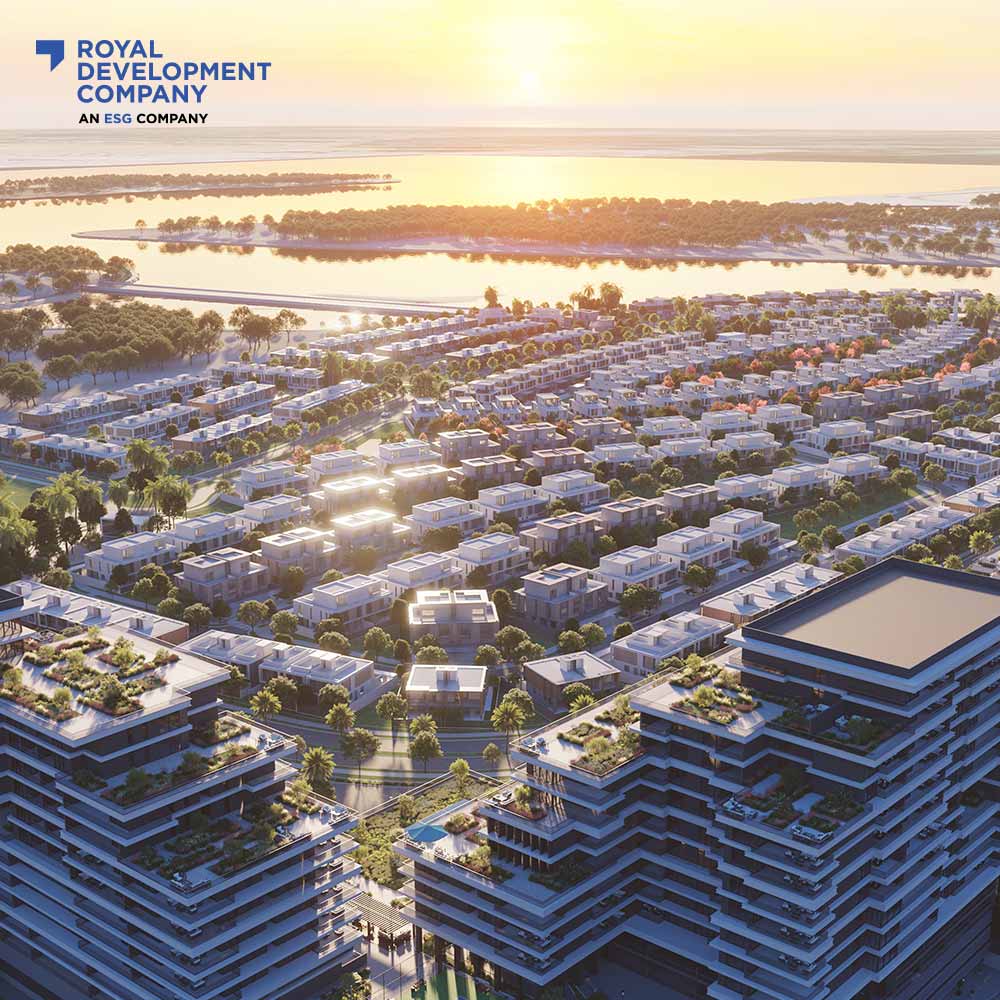Real Estate Investment Strategies
Real estate investment strategies offer a wide array of opportunities for generating income and building large wealth over time. It offers a tangible asset that tends to be appreciated over time.
Compared to other investment options, the real estate market tends to be less volatile. This provides a sense of stability and a hedge against inflation.
Generally, the combination of capital appreciation, passive income, boundless opportunities, benefits, and stability makes real estate investment an intriguing choice for those who seek long-term capital accumulation.
Yet, there isn’t a single strategy that works for everyone.
The availability of too many options makes it challenging for new investors to decide the best approach.
What aligns with your financial goals, how much money you are willing to invest, and how much risk you are comfortable taking?
These, among many other factors, determine which strategy works best for you.
In this simple yet comprehensive guide, we will discuss the top real estate investment strategies. To assist you in achieving your long-term financial objectives.
When speaking of real estate investment strategies, we can categorize them into two main approaches:
- Active investing, as the name implies, takes a hands-on approach. Wherein investors are involved in all aspects of property purchase, management, and marketing. This approach requires active engagement as well as a large amount of time and effort.
- Passive investing, on the other hand, allows investors to generate income without actively managing the properties they own on a daily basis. It requires a long-term mindset that disregards the market's daily changes.
Let us delve into the depth of each approach to help you establish a clearer vision.
Active Real Estate Investment Strategies
1- Fix-and-Flip
The fix-and-flip strategy is about acquiring buildings that require repairs, improving them, and then reselling them for a profit. The success of this strategy demands a sharp eye for discovering inexpensive homes and the ability to manage renovations successfully.
Because the amount of profit gained relative to the purchase price, as well as the speed of selling the property determines whether it’s been a successful investment or not. This strategy usually occurs within a short period – typically 12 months.
Successful flippers have a well-oiled system in place, which includes access to low-cost supplies, a trained and moderately priced workforce, and a real estate agent who can assist in speedy sales.
2- Wholesaling
Another widespread strategy is wholesaling. It entails locating excellent prices on investment properties and immediately reselling them for a little profit. This technique necessitates good negotiating and marketing skills in order to uncover profitable possibilities and link buyers and sellers.
Where you act as an intermediary between them, receiving a charge for the service or the difference between the seller's and the buyer's fees.
This strategy is a popular way for new investors who seek to dip their toes into the realm of real estate.
Passive Real Estate Investment Strategies
3- House Hacking
House hacking is a popular passive real estate investment strategy. It involves buying a property and renting out a part of that property. It typically allows investors to live in a property while earning rental income. Purchasing a duplex, triplex, fourplex, or property with additional rentable space is another way investors house hack. By renting out part of the property, investors can offset their housing costs and pull out cash to buy other properties. This strategy is perfect for those who want to get slowly into the real estate investment business.
4- Live-In-Then-Rent
This is a quite similar strategy to House Hacking. Investors live in a home that will eventually be rented out, but unlike the House Hacking approach, the property is not rented while the investor is there. This technique allows investors to gradually transform homes into rentals, allowing them to create a small portfolio. It is easy to say this is the simplest and safest real estate investment strategy to start with.
Wealth Building Strategies
5- Short-Term Buy and Hold Rentals
The short-term buy-and-hold strategy focuses on owning and holding rental properties for a specific length of time, often one to five years. This technique aims to increase the value of properties through a number of means such as renovations, rent changes, expenditure reduction, or a combination of these. This strategy is particularly beneficial for revitalizing multi-unit apartment complexes and rental properties in high-priced areas with significant appreciation but limited cash flow.
6- Long-Term Buy and Hold Rentals
This strategy entails holding properties over a lengthy period of time, ranging from five to thirty years. The value grows over time and the investor benefits from a consistent rental income. In addition to the tax benefits and loan amortization. Long-Term Buy and Hold Rentals provides a consistent revenue stream as well as long-term capital building. When the property's worth surpasses the investor's estimate, they can sell it for a profit or continue to receive rental income.
Debt Strategies
7- Hard Money Lending
Instead of a typical loan, hard money lending is a financing method in which a short-term loan is acquired from private investors or people. These loans are often high-interest and may have tougher terms than a standard loan. As a determining element, these loans are also secured by the property being financed. While this method can be profitable and adaptable, it is riskier. Lenders must thoroughly evaluate borrowers and properties. Many borrowers may demand interest rates up to ten percentage points more than regular loans, as well as strict payback schedules.
8- Discounted Note Investing
As the name suggests, this strategy is about obtaining discounted real estate debt. This technique involves purchasing defaulted notes from other vendors or institutions. When done correctly, discounted note investment has the potential for significant profits with low risk.
Hybrid Strategies
9- BRRRR: Buy, rehab, rent, refinance, repeat
The name lays out the steps that an investor will move through when using this method. This method entails buying distressed homes at a discount, rehabilitating them, renting them out, and then refinancing to recover the initial investment. BRRRR investment allows investors to establish a rental portfolio while using as little of their own money as possible. The technique entailed spotting exceptional offers; therefore, it is best suited to experienced investors. The “Repeat” step is what makes this strategy so appealing, where investors use cash from the refinance and start the whole process all over again.
10- The Rental Debt Snowballing
This strategy focuses on paying off mortgage debt with cash flow generated by rental properties. Investors can speed debt paydown and build a consistent income stream by concentrating cash flow on one mortgage at a time until it can be eliminated. This strategy is suitable for investors who want to have control over their capital-building strategies. They can customize payoff plans based on their own objectives, research, and analyses. This strategy is also flexible which minimizes financial risks. Investors can slow down or stop paydowns in case their circumstances change.
what is the best real estate investment strategy in UAE?
The best real estate investment strategy in the United Arab Emirates (UAE) can vary depending on several factors, including your financial goals, risk tolerance, and the specific emirate (e.g., Dubai, Abu Dhabi) where you plan to invest. The UAE has a dynamic and rapidly evolving real estate market, so it's essential to consider the following strategies:
Long-Term Buy and Hold:-
This strategy involves purchasing properties in the UAE and holding onto them for the long term to benefit from rental income and potential appreciation. The UAE has a growing expatriate population, which can create demand for rental properties.
Short-Term Rentals (e.g., Airbnb):
The UAE, especially Dubai, is a popular tourist destination, making short-term rentals, such as Airbnb, a viable strategy. This can provide higher rental income during peak tourist seasons.
Off-Plan Investments:-
Buying properties before they are completed (off-plan) can be a lucrative strategy if you can secure favorable prices. Developers in the UAE often offer payment plans for off-plan properties, which can make them more accessible to investors.
Commercial Real Estate: -
The UAE is a regional business hub, and investing in commercial properties like office spaces, retail outlets, or warehouses can yield high rental income. However, this often requires larger capital and market expertise.
Free Zones and Business Districts:-
Investing in properties located in free zones or established business districts can be advantageous, as these areas often attract businesses and expatriate workers, resulting in strong rental demand.
Real Estate Investment Trusts (REITs):-
Consider investing in UAE-based REITs, which provide an opportunity to invest in real estate without owning physical properties. These can be a more liquid and diversified option.
Consult Local Experts:-
Due to the UAE's unique real estate market dynamics, it's crucial to work with local real estate experts, agents, and property managers who understand the local regulations, market trends, and investment opportunities.
Tax Considerations:-
Be aware of tax regulations in the UAE, as there is no income tax on rental income or capital gains for individual investors. However, you should stay informed about any changes in tax policies.
Market Research:-
Thoroughly research the specific emirate and neighborhood where you intend to invest. Different emirates may have varying market conditions and regulations.
Diversification:-
Consider diversifying your real estate portfolio by investing in different types of properties or in multiple emirates to spread risk.
Before making any investment, it's crucial to conduct due diligence, understand local regulations and laws, and work with professionals who can provide guidance on legal, financial, and market matters. keep in mind that the UAE's real estate market can be subject to fluctuations, so it's essential to have a long-term perspective and a well-thought-out investment strategy.
what real estate investment techniques in UAE?
There are several real estate investment techniques you can consider in the United Arab Emirates (UAE). The UAE is known for its vibrant real estate market, and investors have various options to choose from. Here are some common real estate investment techniques in the UAE:
Buying Residential Properties
Off-Plan Investments
- Commercial Real Estate
- Short-Term Rentals (Airbnb)
- Long-Term Rentals
- Real Estate Investment Trusts (REITs)
- Real Estate Crowdfunding
- Hotel Investments
- Land Investments
- Real Estate Development
- Real Estate Flipping
- Free Zone Investments
- REIT ETFs
working with reputable real estate agents and legal advisors. Additionally, consider your investment goals, risk tolerance, and the duration of your investment when choosing the right technique for you.
low-risk real estate investing strategies in UAE
Investing in real estate in the United Arab Emirates (UAE) can be lucrative, but it's essential to prioritize low-risk strategies due to market dynamics and fluctuations. Here are detailed low-risk real estate investment strategies in the UAE, along with examples:
Off-Plan Property Investments:
Strategy: Investing in off-plan properties involves purchasing units in a development before it is completed, often at a lower cost compared to ready properties. This strategy can be lower risk if you choose reputable developers and locations.
Example: You identify a well-established developer in Dubai launching a new residential project in a prime location. You purchase an apartment at an early stage, benefiting from lower prices and flexible payment plans. As the project progresses, the value of your property appreciates, and you can either sell it for a profit or generate rental income.
Long-Term Buy and Hold:
Strategy: Invest in properties in stable, desirable neighborhoods with a history of consistent appreciation and high demand. Focus on generating rental income to cover expenses and provide a steady return over time.
Example: You acquire a three-bedroom apartment in a reputable community in Abu Dhabi. You secure a long-term tenant with a lease agreement that covers your mortgage and expenses while leaving a surplus for you. Over the years, the property appreciates, and you enjoy a consistent income stream.
Real Estate Investment Trusts (REITs):
Strategy: Invest in UAE-based REITs, which are publicly traded companies that own and manage income-producing real estate properties. REITs offer diversification and professional management, reducing individual property risks.
Example: You purchase shares in a UAE REIT listed on the stock exchange. This REIT primarily holds office buildings in Dubai's central business district. As a shareholder, you receive dividends generated from the rental income of these properties, and the risk is spread across the REIT's portfolio.
Commercial Real Estate:
Strategy: Invest in commercial properties like office spaces, retail spaces, or warehouses. Commercial real estate can provide stable rental income, especially if leased to reputable businesses with long-term leases.
Example: You buy a retail unit in a popular shopping mall in Dubai. A well-known international brand signs a 10-year lease for the space, providing you with a steady stream of rental income. The brand's reputation and lease agreement mitigate vacancy risks.
Diversification:
Strategy: Spread your investments across different property types (residential, commercial), locations (Dubai, Abu Dhabi, Sharjah), and even property sizes (apartments, villas, plots of land) to reduce risk.
Example: Instead of investing all your capital in a single luxury villa in Dubai, you diversify by purchasing apartments in different areas of the city and a commercial office space in Abu Dhabi. This diversification helps mitigate the impact of market fluctuations in any single location or asset class.
Thorough Due Diligence and Legal Advice:
Strategy: Before making any investment, conduct extensive research and seek legal advice to ensure your rights and interests are protected.
Example: You consult with a real estate attorney to review contracts, assess market conditions, and verify property titles. This due diligence helps you identify potential risks and make informed investment decisions.
Remember that while these strategies can help reduce risk, no investment is entirely risk-free. It's crucial to tailor your approach to your financial goals, risk tolerance, and market conditions in the UAE. Additionally, stay informed about local laws and regulations regarding property ownership and investment in the UAE, as these can impact your strategy and risk exposure.
what short-term real estate investment strategies in UAE?
Short-term real estate investment strategies in the United Arab Emirates (UAE) can be lucrative but also come with risks. Here are some short-term real estate investment strategies you can consider:
Flipping Properties: Buy distressed or undervalued properties, renovate them, and then sell them at a higher price. This strategy can yield quick profits but requires a good understanding of the local market and renovation costs.
Short-Term Rentals (Airbnb): Invest in properties in popular tourist or business areas and rent them out on platforms like Airbnb. This can provide a steady stream of income, especially during peak tourist seasons.
Buying Off-Plan Properties: Invest in properties that are still under construction (off-plan). As the property nears completion, its value often increases. You can then sell it before or after completion for a profit.
Wholesaling: Act as an intermediary between sellers and buyers. Find properties at a good price, negotiate a deal with the seller, and then sell the contract to another buyer for a fee.
Real Estate Investment Trusts (REITs): Consider investing in REITs that focus on UAE real estate. These trusts typically pay dividends and provide an opportunity for short-term gains through stock trading.
Short-Term Lease Arbitrage: Lease a property at a fixed monthly rent and then sublease it to tenants at a higher rate, especially in areas with high demand for rentals.
Commercial Real Estate: Invest in commercial properties like office spaces or retail outlets. Businesses often sign short-term leases, providing potential for frequent turnover and profit.
Real Estate Crowdfunding: Participate in real estate crowdfunding platforms that allow you to invest in short-term projects or developments alongside other investors.
Hotel Room Investments: Some hotels offer the opportunity to invest in individual rooms. You can earn a share of the room's revenue, and these investments can be short-term.
Flipping Land: Buy undeveloped land in strategic locations and sell it to developers once its value appreciates.
Before pursuing any of these strategies, it's essential to conduct thorough market research, understand local regulations, and assess your risk tolerance. Additionally, consider seeking advice from real estate professionals or financial advisors with expertise in the UAE market. Real estate markets can be volatile, so a well-thought-out strategy and due diligence are crucial for success.
Explore the world of Real Estate Investment Management in Abu Dhabi and stay updated with the latest news in the real estate industry. Your gateway to informed decisions and prosperous investments. Read more for insights that shape the future of property management."
Feel free to let me know if you need any adjustments
READ MORE ......
Uncover the pinnacle of luxury living at Mallside Residence, an exclusive collaboration with Curio Collection by Hilton. Dive into a community that transcends traditional living – promising not just a home, but a lifestyle seamlessly woven with Hilton's bespoke hospitality and the ease of urban connectivity.
Experience the epitome of connected living where every detail reflects a commitment to extraordinary living. Nestled alongside Dubai Hills Mall, Mallside Residence provides direct access to a tapestry of vibrant retail experiences, placing you at the heart of urban indulgence.
Elevate your lifestyle with us. Mallside Residence isn't just a residence; it's an invitation to a world where luxury meets convenience, and every moment is tailored to perfection. Don't miss out on this unique living experience – be part of a community that redefines premium living.
Start your journey to exceptional living today. Explore Mallside Residence and discover the art of luxury living, curated for those who seek more than just a home. Your key to unrivaled experiences awaits – seize it now!
FAQ
Q1: What are some popular real estate investment strategies in the UAE?
A1: Popular real estate investment strategies in the UAE include long-term buy and hold, off-plan investments, short-term rentals (like Airbnb), investing in REITs, and commercial real estate ventures, among others.
Q2: Is it a good idea for foreigners to invest in UAE real estate?
A2: Yes, the UAE allows foreigners to invest in its real estate market. It can be a lucrative option due to its robust economy and growing property values. However, it's essential to understand local regulations and market dynamics before investing.
Q3: What is an off-plan investment, and how does it work in the UAE?
A3: Off-plan investments involve buying properties before they are constructed or completed. In the UAE, developers often offer off-plan properties at competitive prices. Investors aim to benefit from price appreciation once the project is finished.
Q4: Are there short-term real estate investment opportunities in the UAE?
A4: Yes, the UAE offers various short-term investment opportunities, such as property flipping, Airbnb rentals, and investing in short-term REITs or real estate crowdfunding projects. These strategies cater to investors looking for quicker returns.
Q5: What should investors consider before choosing a real estate investment strategy in the UAE?
A5: Before selecting a strategy, investors should consider factors like their financial goals, risk tolerance, market research, and understanding of local regulations. Consulting with real estate professionals or financial advisors is also advisable.
Q6: Are there tax implications for real estate investors in the UAE?
A6: The UAE generally does not levy property taxes or capital gains taxes on real estate investments. However, it's essential to stay updated on tax regulations and consult with tax professionals to ensure compliance.
Q7: What are some tips for successful real estate investment in the UAE?
A7: Successful real estate investment in the UAE involves conducting thorough due diligence, choosing the right location, working with reputable developers, diversifying your portfolio, and staying informed about market trends and legal requirements.
Q8: Can I invest in UAE real estate through real estate crowdfunding platforms?
A8: Yes, real estate crowdfunding is gaining popularity in the UAE. It allows investors to participate in property projects with lower capital requirements. Be sure to select a reliable crowdfunding platform and conduct due diligence on the projects offered.
Q9: What role do REITs play in real estate investment strategies in the UAE?
A9: Real Estate Investment Trusts (REITs) in the UAE offer investors a way to access real estate assets without direct ownership. They provide liquidity, diversification, and regular income through dividends, making them a valuable component of many investment strategies.
Q10: Are there financing options available for real estate investors in the UAE?
A10: Yes, banks and financial institutions in the UAE offer various financing options for real estate investors, including mortgages and loans. Investors should explore these options to leverage their investments effectively.
Unlock the secrets to successful real estate investment with our exclusive article on 'Real Estate Investment Management in Abu Dhabi.' Dive into a wealth of knowledge that will empower you to make informed decisions and navigate the dynamic world of real estate. From strategic insights to market trends, this article is your key to maximizing returns in Abu Dhabi's thriving property landscape. Don't miss out on this valuable resource – click now to embark on your journey towards financial prosperity through intelligent real estate investment management.
In Conclusion;
Real estate investing strategies are available to meet the aims and risk tolerance of any investor. Whether you prefer an active method like fix-and-flip or a passive technique like home hacking, it' critical to thoroughly consider each choice before investing your time and money. Investors may maximize their profits and achieve long-term financial success by combining diverse techniques and responding to market conditions.
Remember that the ideal real estate investing plan is one that suits your goals and specific circumstances. Yet, with so many options, deciding which strategy to follow may be daunting.
Explore the real estate investment opportunities through Royal Development Company. A major player in the international development arena with a team of highly skilled experts and a broad array of expertise. We assist our clients in achieving their different objectives and maximizing value while minimizing risk.
Contact us today for more information.
Read more about our New Project
LASTEST NEWS
-

-

-

-

-

-

-

-

-

-

-

-

-

-

-

-

-

Effective Strategies for Successful Real Estate Development Projects
September 03-2025 -

What to Look for When Selecting Property Developers in Abu Dhabi
September 11-2025 -

Solving Data Management Issues with Effective Real Estate CRM Systems
September 17-2025 -

Risk Mitigation Techniques for Property Investments in Dubai
September 26-2025 -

The Building Blocks of a Thriving Property Development Company
October 21-2025 -

-

-

-

When Your Real Estate CRM Isn't Delivering_ Troubleshooting Guide
November 13-2025 -

What Property Valuations Tell You About Market Direction in Dubai
November 19-2025 -

Construction Delays in Development Projects_ Prevention and Response
November 21-2025 -

Budgeting Errors That Derail Property Development Projects
November 26-2025 -

Spotting Opportunity Zones in the Changing UAE Real Estate Market
November 27-2025 -

How to Respond When Investment Returns Don't Meet Expectations
November 28-2025 -

How Asset Depreciation Affects Your Property Portfolio Performance
December 16-2025 -

Smart Technology Integration Barriers in Modern Dubai Properties
December 17-2025 -

Managing Seasonal Occupancy Fluctuations in UAE Properties
December 22-2025 -

Solving Project Timeline Delays in Dubai Development Ventures
December 29-2025 -

Ways to Improve Building Energy Efficiency in Abu Dhabi Properties
December 30-2025 -

Scaling Property Management Operations Without Service Quality Loss
December 31-2025
